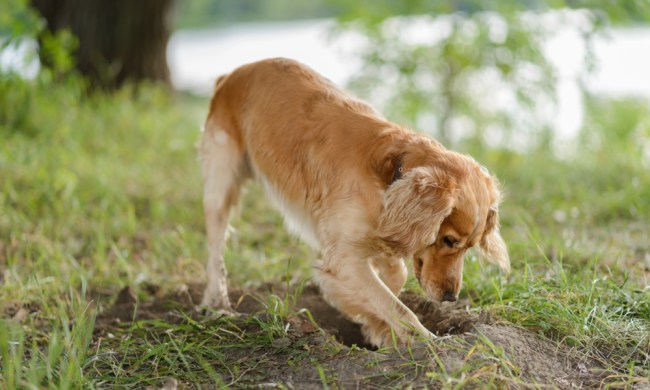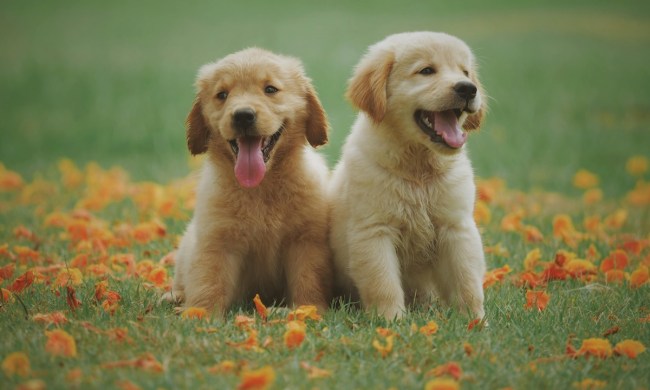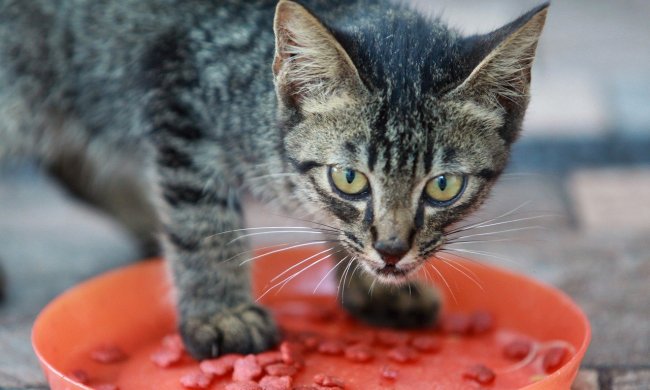Research shows that a cat’s purr is equally voluntary and instinctive. If you share your home with a frisky feline, you already know their vocalizations can run the gamut from inquisitive chirps to demanding yowls. But every cat parent’s favorite sound is undoubtedly the purr.
Cats purr not only to communicate their happiness, but also as a form of self-soothing. That’s why injured and sick cats often purr. They aren’t happy; they’re trying to make themselves feel better. Have you ever wondered, “When do kittens start purring?” We’ll share everything you need to know about kittens purring and their development, from when they open their eyes to when you should have a kitten spayed or neutered.
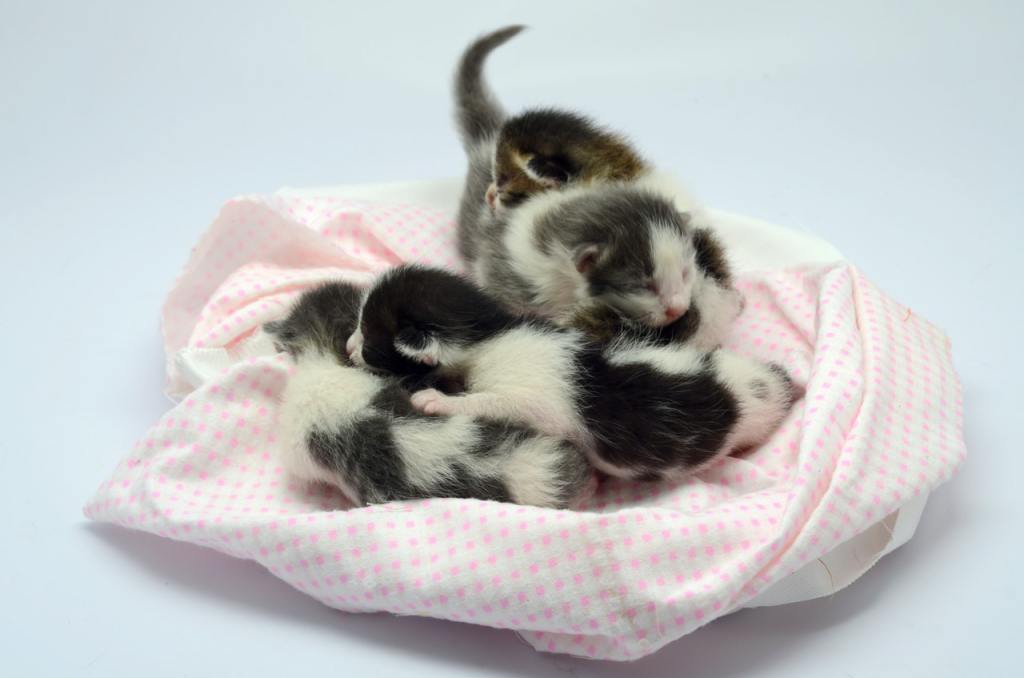
At what age do kittens start purring?
While some kittens may purr almost immediately after birth in response to their mother’s vocalizations, they most often communicate using tiny squeaks and mewls when they’re hungry. Kittens normally begin to purr when they reach around 3 weeks of age. They do so as a way to communicate with Mama Cat and their littermates, creating a sense of calm and happiness during snuggle and feeding time. Kittens make this adorable sound for the same reasons adult cats do — to self-soothe and to communicate with their mother, littermates, and humans.
How kittens develop week by week
Kittens go through their stages of development rapidly in their first weeks of life. If you’re caring for newborn kittens, you’ll want to know how they progress through these kittenhood stages. Here are a few milestones you can expect your new fur babies to hit – and when they should appear.
1-3 weeks old
At this stage, your tiny bundles of adorableness should develop sight and hearing. Kittens are born blind and deaf, and while their eyes open when they’re around 2 weeks old, they still can’t see very well. Their pupils are still developing the ability to dilate and contract in response to light, so you’ll want to keep your newborn kittens out of bright light to protect their eyes. It’s also possible that you’ll be able to tell the sex of your kittens at this age, but not even veterinarians can determine sex with 100% certainty when kittens are this small.
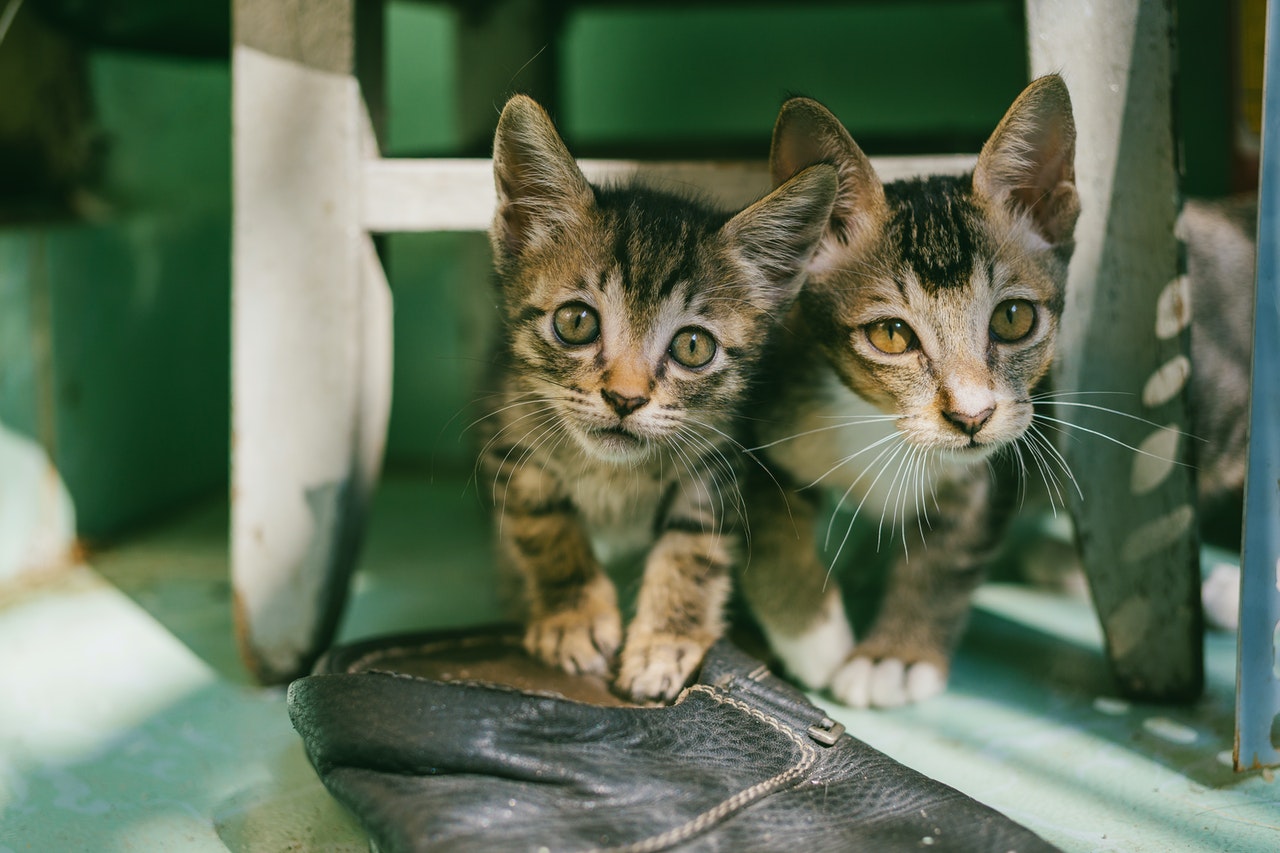
3-5 weeks old
One of the most adorable stages of kitten development occurs during this stage. Kittens take their first steps when they’re around 3 weeks old. (Is there anything cuter than a kitten’s awkward, waddling gait? Probably not.) By the fourth and fifth weeks, your kittens will grow more confident and curious, so this is the time to kitten-proof your home. Your kittens should also have a strong enough sense of balance to use the bathroom without needing their mother’s help anymore. According to Petful, you can begin training your kitten to use the litter box when they’re between 4 and 5 weeks old.
6-8 weeks old
Whether you intend to keep the entire litter or are allowing friends to adopt a few of the kittens, this is the perfect time to begin socializing the litter. You can begin to socialize kittens as early as 2 weeks old, but contact should be limited to responsible adults. Young kittens are delicate, and enthusiastic children may harm them accidentally. You’ll want to take your kittens to the vet for a checkup and their first set of vaccinations when they’re around 8 weeks old. This is also the perfect time to teach your kittens not to bite. They’ll have all their deciduous teeth — also known as baby teeth — by 8 weeks old, and they’re razor-sharp.
9-12 weeks old
Kittens can begin to transition to solid food as early as 5 weeks old, but they should be eating a diet of primarily solid food by 9-12 weeks of age. According to most veterinarians, you should also feed Mama Cat the same calorie-dense kitten food her little ones are eating, as this helps replenish nutrients lost during nursing.
3-6 months old
If you’re planning to give the kittens up for adoption, wait until the 12-week mark to ensure they’ve had their vaccinations. It’s also best to wait until they reach 3 to 6 months of age before allowing anyone to adopt them. This gives kittens time to learn to socialize with their littermates, making them more likely to accept other cats in their new household. Better yet, make sure kittens are adopted in pairs. Kittens are playful, sociable creatures, and they tend to be happier with a playmate. According to Today’s Veterinary Practice, the optimal time to spay and neuter your cats is when they reach 4 to 5 months of age.
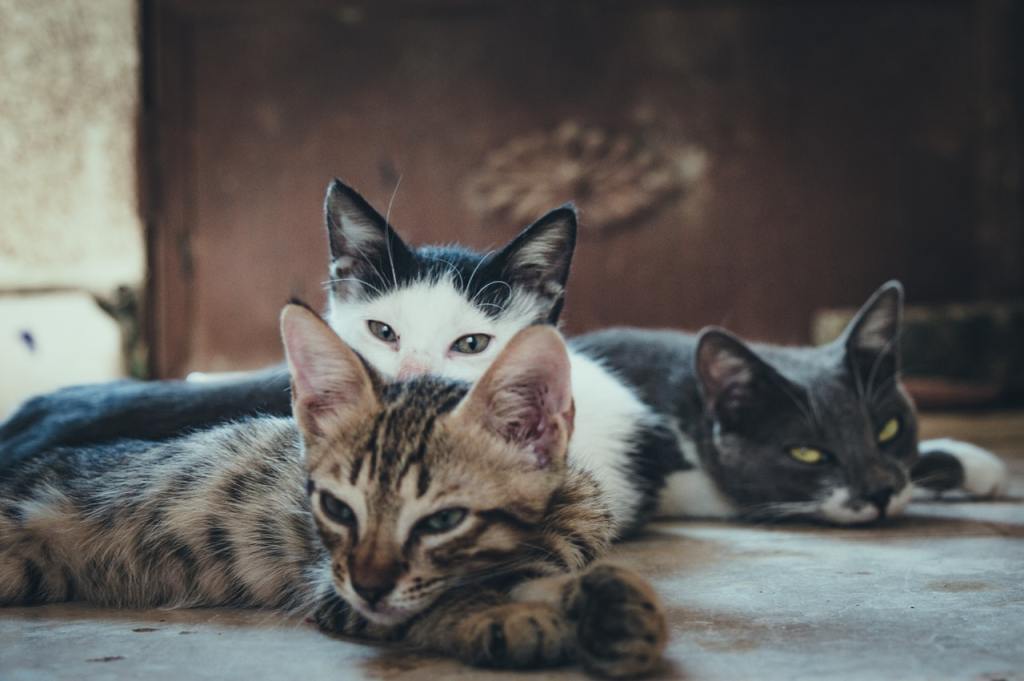
In closing
By the time your kitten reaches 1 year of age, they’re technically no longer a kitten. That being said, you’ll probably always consider them to be your kitten. Cats can make over 60 types of vocalizations, and especially clever kittens will begin training you to play with them and feed them early on.

